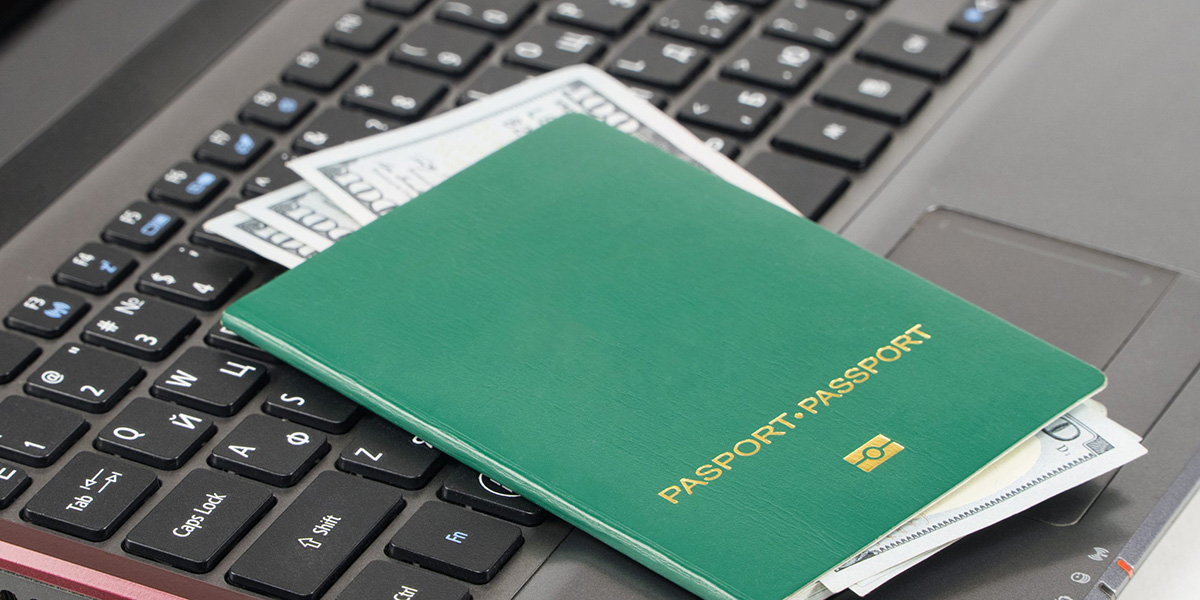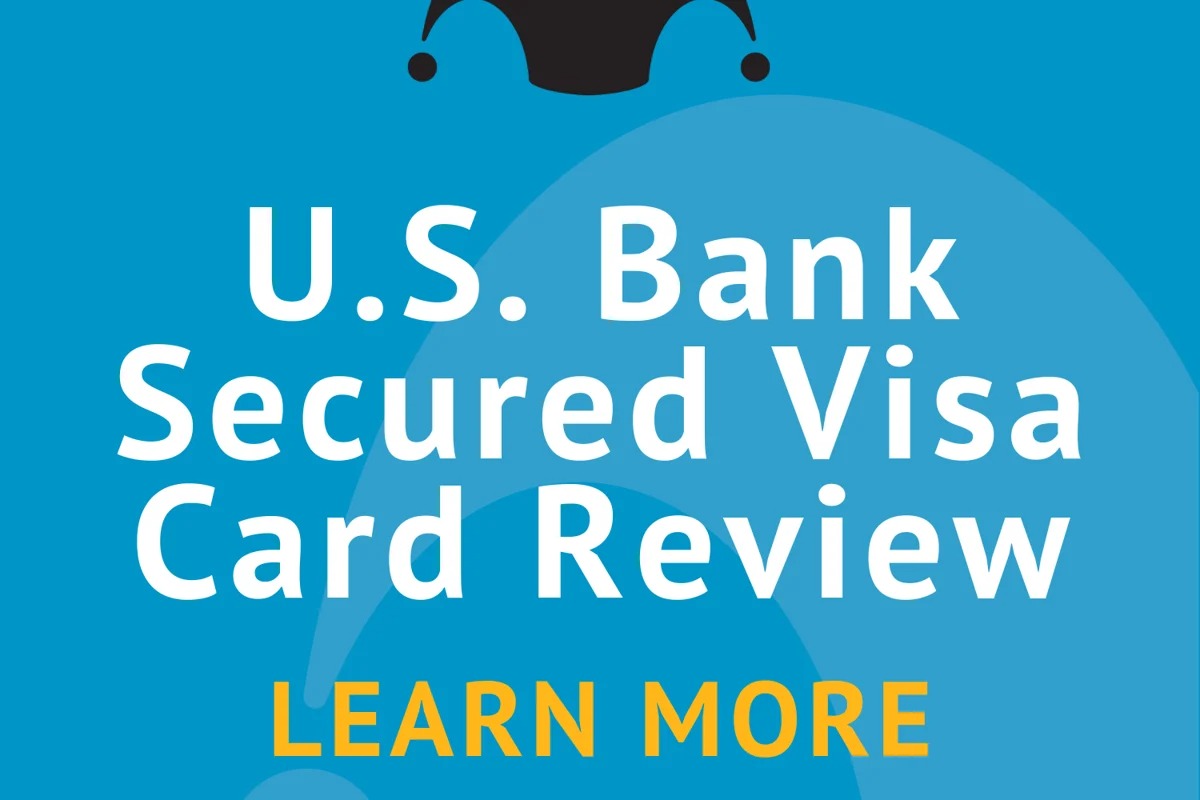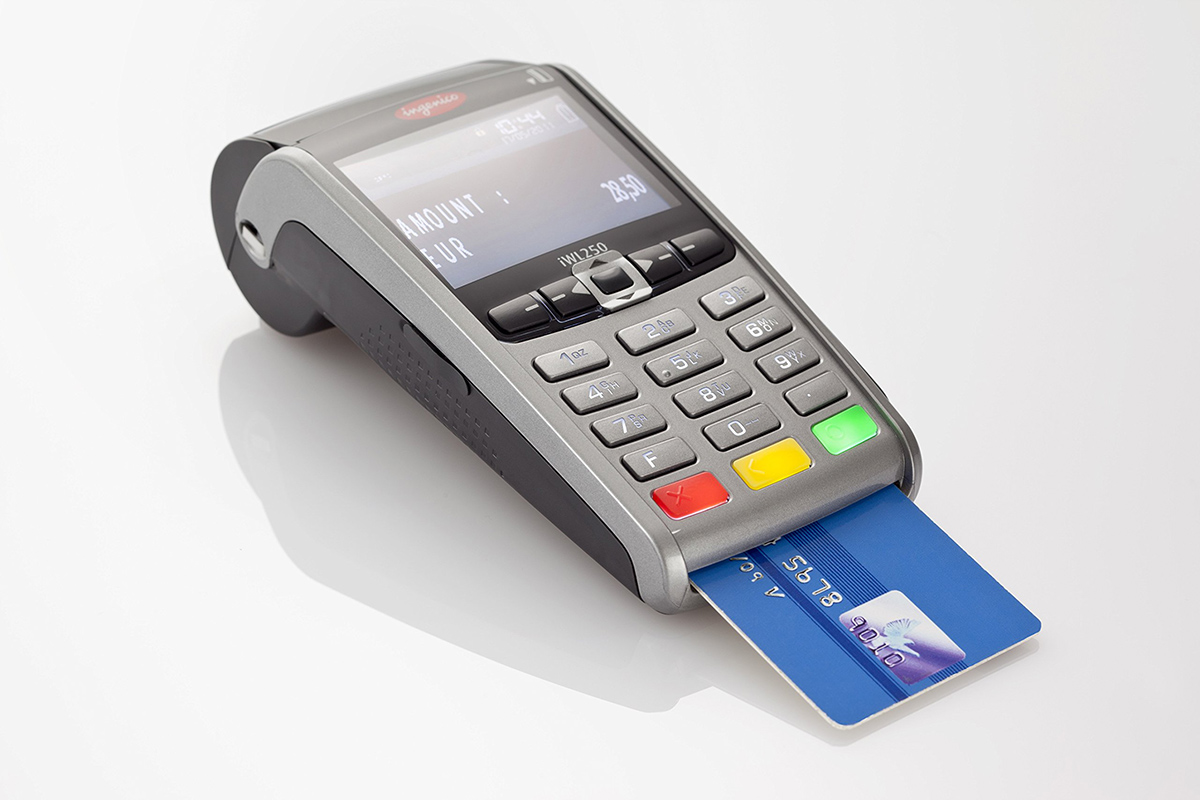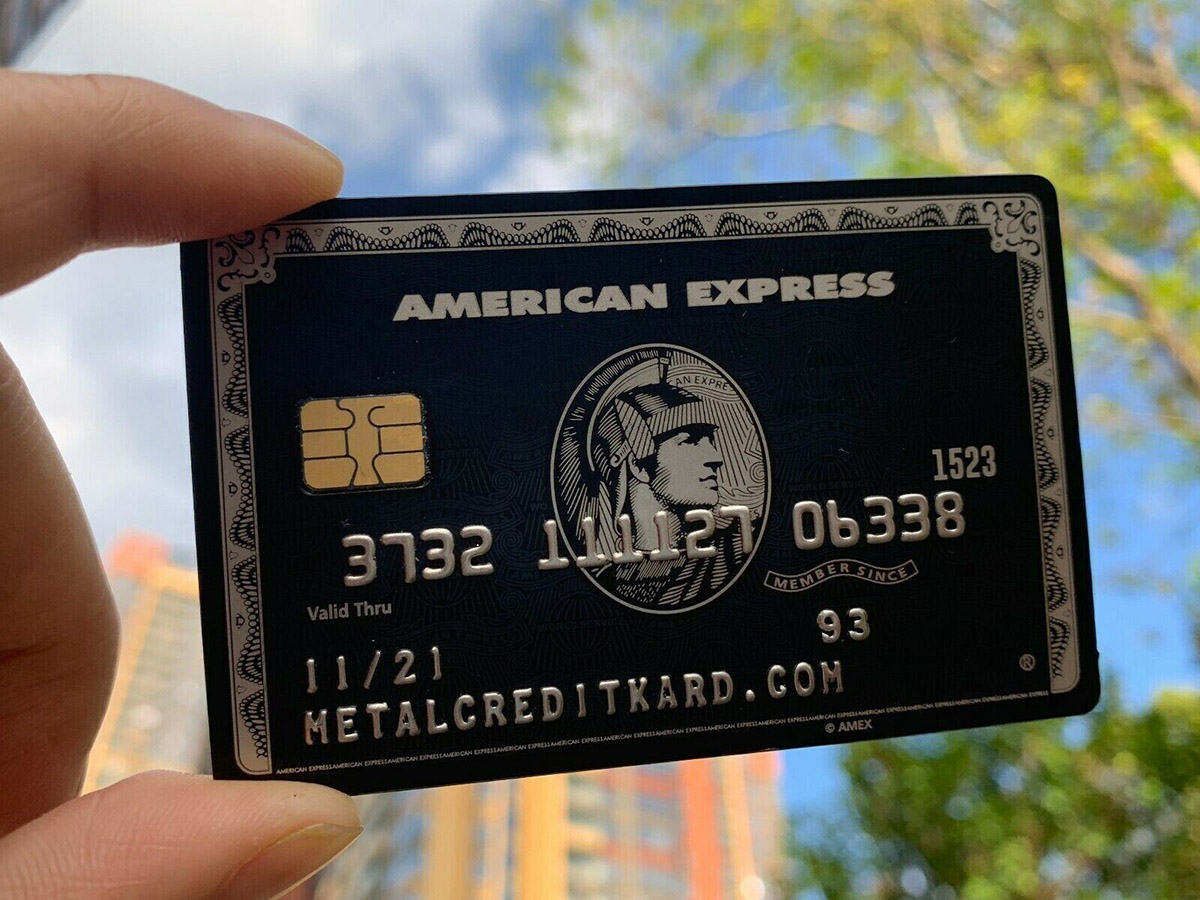

Finance
How To Get A US Credit Card For Non Residents
Published: November 4, 2023
Learn how to get a US credit card even if you're a non-resident. Find out the best options and requirements for international applicants. Finance made easy!
(Many of the links in this article redirect to a specific reviewed product. Your purchase of these products through affiliate links helps to generate commission for LiveWell, at no extra cost. Learn more)
Table of Contents
- Introduction
- Understanding the Importance of Having a US Credit Card
- Eligibility Criteria for Non-Residents to Obtain a US Credit Card
- Documents Required for Non-Residents to Apply for a US Credit Card
- Choosing the Right Type of US Credit Card for Non-Residents
- Steps to Apply for a US Credit Card as a Non-Resident
- Factors to Consider When Applying for a US Credit Card as a Non-Resident
- Building Credit History with a US Credit Card for Non-Residents
- Tips and Tricks for Non-Residents to Successfully Obtain a US Credit Card
- Conclusion
Introduction
In today’s globalized world, having a US credit card can offer numerous benefits for non-residents. Whether you are a student studying abroad, an expatriate working in the US, or a frequent traveler, a US credit card can provide you with a convenient and secure way to make purchases, manage expenses, and build your credit history. However, obtaining a US credit card as a non-resident can be a challenging process.
Understanding the importance of having a US credit card is key. Many businesses and online retailers in the US only accept US-issued credit cards, making it difficult for non-residents to make purchases or access certain services. Additionally, having a US credit card can provide you with the convenience and flexibility of making payments and accessing funds without the need for currency exchange or carrying large amounts of cash.
The eligibility criteria for non-residents to obtain a US credit card can vary depending on the credit card issuer and the specific type of credit card. While some credit card issuers may have stricter requirements for non-residents, others may offer specific credit cards tailored to the needs of non-residents.
In this article, we will explore the eligibility criteria, necessary documents, and steps involved in obtaining a US credit card as a non-resident. We will also discuss factors to consider when choosing the right type of credit card and offer tips and tricks to successfully navigate the process.
Understanding the Importance of Having a US Credit Card
Having a US credit card as a non-resident can offer a range of advantages and convenience. Here are some key reasons why it is important to have a US credit card:
- Widely accepted: US credit cards are widely accepted both online and in physical stores throughout the United States. Many businesses, retailers, and service providers in the US only accept US-issued credit cards, making it difficult for non-residents to make purchases or access certain services without one.
- Convenient and secure transactions: With a US credit card, you can enjoy the convenience of making purchases without the need for currency exchange or carrying large amounts of cash. Credit cards also provide added security through fraud protection and dispute resolution services, giving you peace of mind when making transactions.
- Build credit history: A US credit card can help you establish and build a credit history in the United States. Having a good credit history is crucial for various financial endeavors such as renting an apartment, applying for loans, or even securing employment.
- Access to exclusive offers and rewards: Many US credit cards offer perks, rewards programs, and exclusive benefits such as cashback, travel rewards, airline miles, and discounts on purchases. These rewards can help you save money and enhance your overall financial experience.
- Ease of financial management: Using a US credit card allows you to track and manage your expenses easily. Most credit card issuers provide online banking platforms and mobile apps, enabling you to view your transactions, monitor your spending, and make payments conveniently.
Whether you are traveling, studying, working, or simply need a secure and convenient payment method in the US, having a US credit card as a non-resident can greatly enhance your financial experience and open doors to various opportunities.
Eligibility Criteria for Non-Residents to Obtain a US Credit Card
The eligibility criteria for non-residents to obtain a US credit card can vary depending on the credit card issuer and the specific type of credit card. While some credit card issuers may have stricter requirements for non-residents, others may offer specific credit cards tailored to the needs of non-residents. Here are some general factors that credit card issuers may consider when evaluating the eligibility of non-residents:
- Valid visa or residency status: To apply for a US credit card as a non-resident, you typically need to have a valid visa or residency status in the United States. This can include documents such as an F-1 student visa, a H-1B work visa, a green card, or an employment authorization document (EAD).
- Proof of income: Credit card issuers require applicants to demonstrate their ability to repay the credit card charges. As a non-resident, you may need to provide proof of your income, such as pay stubs, employment contracts, bank statements, or tax returns. It is important to have a stable source of income to increase your chances of approval.
- Social Security Number (SSN) or Individual Taxpayer Identification Number (ITIN): Most credit card issuers require applicants to have a valid Social Security Number (SSN) or an Individual Taxpayer Identification Number (ITIN). Non-residents who do not have an SSN can apply for an ITIN from the Internal Revenue Service (IRS) to fulfill this requirement.
- Age: You must be at least 18 years old to be eligible for a US credit card. Some credit card issuers may have a higher minimum age requirement, such as 21 years old.
- Credit history: Building a credit history in the United States is often a challenge for non-residents. However, some credit card issuers offer credit cards specifically designed for individuals with limited or no credit history. These cards may have higher interest rates or lower credit limits, but they can be a valuable tool for establishing credit as a non-resident.
It is important to note that the eligibility criteria can vary significantly among credit card issuers. It is advisable to research and compare different credit card options to find those that align with your specific situation as a non-resident.
Documents Required for Non-Residents to Apply for a US Credit Card
When applying for a US credit card as a non-resident, you will typically need to provide certain documents to support your application. While the specific requirements may vary depending on the credit card issuer, here are some common documents you may need:
- Valid identification: You will need to provide a valid form of identification, such as a passport or a government-issued ID. This is necessary to verify your identity and ensure you meet the legal requirements for applying for a credit card.
- Proof of address: Credit card issuers may require you to provide proof of your current address. This can be done by submitting utility bills, bank statements, or rental agreements that clearly display your name and address.
- Visa or residency documentation: As a non-resident, you will typically need to provide documentation that proves your legal status in the United States. This can include a photocopy of your visa, employment authorization document (EAD), green card, or any other relevant documentation provided by the US Citizenship and Immigration Services (USCIS).
- Proof of income: You will need to demonstrate your ability to repay the credit card charges by providing proof of income. This can include recent pay stubs, employment contracts, bank statements, or tax returns. It is important to have a stable source of income to increase your chances of approval.
- Social Security Number (SSN) or Individual Taxpayer Identification Number (ITIN): Most credit card issuers require applicants to have a valid Social Security Number (SSN) or an Individual Taxpayer Identification Number (ITIN). If you do not have an SSN, you can apply for an ITIN from the Internal Revenue Service (IRS).
It is important to thoroughly review the credit card issuer’s requirements and gather the necessary documents before applying for a US credit card as a non-resident. Providing complete and accurate documentation will help expedite the application process and increase your chances of approval.
Choosing the Right Type of US Credit Card for Non-Residents
When it comes to choosing the right type of US credit card as a non-resident, there are several factors to consider. Different credit cards offer various features, benefits, and eligibility requirements. Here are some considerations to help you make an informed decision:
- Secured credit cards: Secured credit cards are a common choice for non-residents who are new to credit or have a limited credit history. These cards require a cash deposit as collateral, which is typically equal to the credit limit. Secured cards can help you build or rebuild your credit history while enjoying the benefits of a traditional credit card.
- Student credit cards: If you are a student studying in the United States, student credit cards may be a suitable option. These cards are specifically designed for students, often with relaxed eligibility criteria and features tailored to student needs. Student credit cards can help you start building credit while offering perks and rewards targeted towards young adults.
- Rewards credit cards: Rewards credit cards allow you to earn points, cashback, or miles for every dollar you spend. This can be especially advantageous if you frequently make purchases or travel. However, keep in mind that rewards cards typically require a good credit score and may have higher eligibility requirements.
- No foreign transaction fee cards: If you frequently travel or make purchases in a foreign currency, consider a credit card with no foreign transaction fees. These cards can save you money on conversion fees and are particularly beneficial for non-residents who often engage in international transactions.
- Credit cards for newcomers: Some credit card issuers offer credit cards specifically targeted towards newcomers to the US. These cards may have features such as lenient credit history requirements, no annual fees, and resources to help you establish and build your credit history.
It is essential to carefully review the terms and conditions, fees, interest rates, and benefits associated with each credit card option. Additionally, consider your spending habits, financial goals, and eligibility to determine which type of credit card aligns best with your needs as a non-resident.
Researching and comparing various credit card options will help you find the right card that suits your specific situation while providing the most value and benefits for your financial journey in the United States.
Steps to Apply for a US Credit Card as a Non-Resident
Applying for a US credit card as a non-resident may seem daunting, but with careful preparation and following the right steps, the process can be relatively straightforward. Here are the general steps to apply for a US credit card as a non-resident:
- Research different credit card options: Start by researching and comparing different credit card options available to non-residents. Look for cards that align with your needs, eligibility criteria, and financial goals.
- Gather the necessary documents: Before applying, gather all the required documents, including your valid identification, proof of address, visa or residency documentation, proof of income, and Social Security Number (SSN) or Individual Taxpayer Identification Number (ITIN).
- Check your credit score: Although non-residents may not have an established US credit history, it’s still important to check your credit score to ensure there are no errors or discrepancies. You can request a copy of your credit report from the major credit bureaus.
- Apply online or in-person: Depending on the credit card issuer, you can choose to apply for the credit card online or visit a local branch in person. Online applications are usually more convenient and allow for faster processing.
- Complete the application form: Fill out the credit card application form accurately and provide all the requested information. Double-check for any errors or missing details before submitting the application.
- Submit the required documents: Attach the necessary documents to support your application, such as your identification, proof of address, visa or residency documentation, and proof of income. Ensure that all documents are clear and legible.
- Wait for approval: After submitting your application, the credit card issuer will review your application and supporting documents. The approval process may take a few days to several weeks, depending on the issuer’s timeline and verification process.
- Activate your credit card: Once approved, you will receive your credit card by mail. Follow the instructions provided to activate your card before it can be used for purchases.
- Start building credit history: Once you have your US credit card, use it responsibly to build your credit history. Make timely payments, keep your credit utilization low, and avoid excessive debt. Paying your credit card bill in full each month can help establish a positive credit history.
Remember to review the terms and conditions of the credit card thoroughly, including the interest rates, fees, and any rewards or benefits offered. Being aware of your responsibilities as a cardholder will help you make the most of your US credit card and enhance your financial journey as a non-resident.
Factors to Consider When Applying for a US Credit Card as a Non-Resident
When applying for a US credit card as a non-resident, there are several important factors to consider. These factors can help you make an informed decision and increase your chances of approval. Here are some key considerations:
- Eligibility requirements: Review the eligibility requirements of different credit card issuers to ensure you meet their criteria. Some issuers may have stricter requirements for non-residents, so it’s essential to choose a card that aligns with your individual circumstances.
- Annual fees and interest rates: Take note of the annual fees associated with the credit card and consider whether the benefits and features offered justify the cost. Additionally, compare the interest rates of different cards to find one that offers competitive rates.
- Rewards and benefits: Evaluate the rewards programs, cashback offers, or other benefits provided by the credit card. Higher rewards may come with stricter eligibility or higher fees, so consider your spending habits and determine if the rewards align with your needs.
- Foreign transaction fees: If you frequently travel or make purchases in a foreign currency, consider a credit card with no or low foreign transaction fees. This can save you money on conversion fees and make your international transactions more cost-effective.
- Customer service and support: Look for a credit card issuer that provides reliable customer service and support. This is especially important as a non-resident, as you may have questions or need assistance with your credit card account.
- Credit limit: Consider the credit limit offered by the credit card. A higher credit limit can provide you with more flexibility for making larger purchases, but it also comes with the responsibility of managing your credit usage effectively.
- Credit reporting: Check if the credit card issuer reports your credit activity to the major credit bureaus. This is crucial for building your US credit history, as timely payments and responsible credit usage will positively impact your credit score over time.
- Additional fees and charges: Read the fine print and understand any additional fees or charges associated with the credit card. This can include fees for late payments, cash advances, balance transfers, or exceeding your credit limit.
It is important to carefully consider these factors and evaluate how they align with your financial goals and circumstances. By doing so, you can choose a US credit card that suits your needs, provides valuable benefits, and helps you establish a strong credit history as a non-resident.
Building Credit History with a US Credit Card for Non-Residents
Building a credit history in the United States is essential for non-residents seeking financial stability and access to various financial opportunities. A US credit card can serve as a powerful tool to establish and build your credit history. Here are some tips to help you effectively build credit as a non-resident:
- Make timely payments: Pay your credit card bill on time each month. Late payments can negatively impact your credit score and hinder your efforts to build a positive credit history. Set up automatic payments or reminders to ensure you never miss a payment.
- Keep your credit utilization low: Try to keep your credit utilization ratio below 30%. This means using only a portion of your available credit limit. A lower credit utilization ratio demonstrates responsible credit management and can positively impact your credit score.
- Monitor your credit report: Regularly monitor your credit report to ensure accuracy and identify any potential issues. You are entitled to a free credit report annually from each of the major credit bureaus. Check for errors, incorrect information, or signs of identity theft.
- Consider a secured credit card: If you are new to credit or have a limited credit history, a secured credit card can be a valuable tool. With a secured card, you provide a cash deposit, which acts as collateral for the credit limit. Making timely payments will help you establish credit and may lead to eligibility for an unsecured credit card in the future.
- Diversify your credit: Consider adding various types of credit to your mix, such as an installment loan or a utility bill in your name. This demonstrates your ability to handle different types of credit responsibly and can boost your creditworthiness.
- Avoid excessive debt: Use your credit card responsibly and avoid carrying high balances or accumulating excessive debt. Lenders prefer borrowers with a conservative debt level, so aim to maintain a manageable balance and make consistent payments.
- Be patient and persistent: Building a credit history takes time and requires patience. Work diligently to establish a positive credit record and continue practicing good credit habits. Over time, you will see the positive impact on your credit score and creditworthiness.
Remember, building credit as a non-resident is a long-term process. Consistently demonstrating responsible credit behavior and maintaining a positive payment history will gradually strengthen your creditworthiness and open doors to better financial opportunities in the future.
Tips and Tricks for Non-Residents to Successfully Obtain a US Credit Card
Obtaining a US credit card as a non-resident can be a challenging process, but with the right strategies, you can improve your chances of success. Here are some tips and tricks to help facilitate the process:
- Research credit card issuers: Take the time to research and compare different credit card issuers that offer credit cards for non-residents. Look for issuers known for being more open to non-residents and offering tailored options to meet their needs.
- Build a relationship with a bank: Establishing a relationship with a bank can make the credit card application process smoother. Consider opening a bank account with a reputable US bank and demonstrate responsible banking behavior to enhance your chances of approval.
- Consider a co-signer or authorized user: Having a co-signer or being added as an authorized user on someone else’s credit card can help boost your creditworthiness and increase your chances of approval. However, ensure that the primary cardholder has a good credit history and practices responsible credit behavior.
- Start with a secured credit card: If you have difficulty qualifying for an unsecured credit card, consider starting with a secured credit card. With a cash deposit as collateral, secured cards offer an opportunity to build credit and may lead to eligibility for an unsecured card in the future.
- Apply for a credit card tailored to non-residents: Some credit card issuers offer credit cards specifically designed for non-residents. These cards may have relaxed eligibility requirements and perks to suit the needs of non-residents, making them a suitable option to explore.
- Work on establishing a credit history: In addition to using a US credit card, consider other methods to establish a credit history, such as paying bills on time or applying for a small credit-builder loan. This demonstrates your ability to handle credit responsibly and can improve your creditworthiness.
- Monitor and maintain your credit: Regularly monitor your credit report for any inaccuracies or discrepancies. Take steps to correct any errors promptly. Additionally, continue practicing good credit habits, such as paying bills on time and using credit responsibly, to maintain a positive credit profile.
- Seek professional guidance: If you’re finding it challenging to obtain a US credit card as a non-resident, consider seeking professional guidance from financial advisors or credit counseling services. They can provide personalized advice and assist you in navigating the credit application process.
Remember, patience and persistence are essential when trying to obtain a US credit card as a non-resident. By following these tips and tricks, you can increase your chances of successfully acquiring a US credit card and begin building a strong credit history in the United States.
Conclusion
Obtaining a US credit card as a non-resident may present some challenges, but with the right approach and knowledge, it is certainly possible. A US credit card can provide you with convenience, security, and the opportunity to build a credit history in the United States. By understanding the importance of having a US credit card, familiarizing yourself with the eligibility criteria and required documents, and choosing the right type of credit card, you can navigate the application process more effectively.
Remember to research different credit card options, considering factors such as rewards, fees, and foreign transaction costs. Building credit history as a non-resident requires responsible credit usage, timely payments, and ongoing monitoring of your credit report. It is crucial to be patient and persistent, as building credit takes time.
Utilize the tips and tricks mentioned to enhance your chances of obtaining a US credit card. Consider the possibility of a secured credit card, seeking a co-signer or authorized user, and exploring credit cards tailored to non-residents. Establishing a relationship with a bank and seeking professional guidance can also be beneficial.
In conclusion, acquiring a US credit card as a non-resident is a valuable step towards financial empowerment and flexibility. With dedication and a strategic approach, you can successfully obtain a US credit card and establish a positive credit history that opens doors to various financial opportunities.














